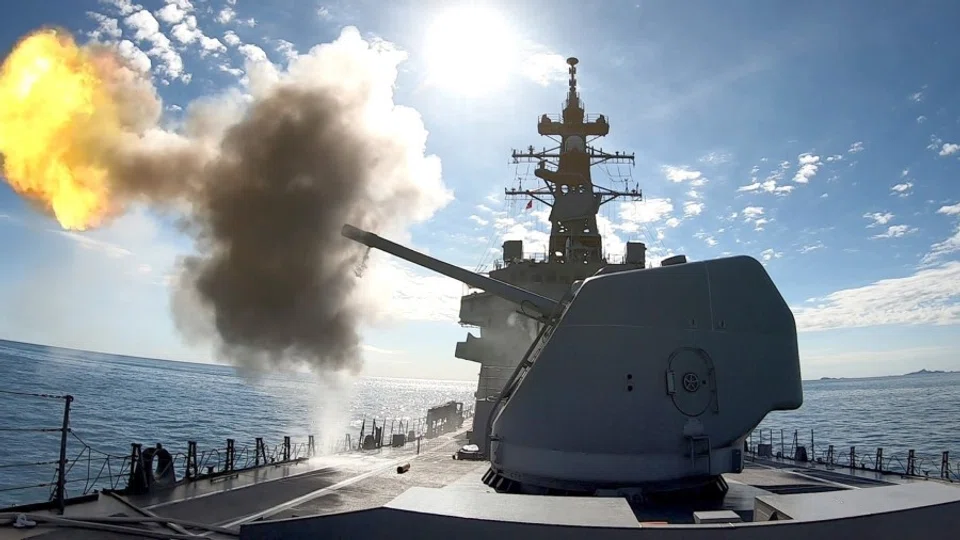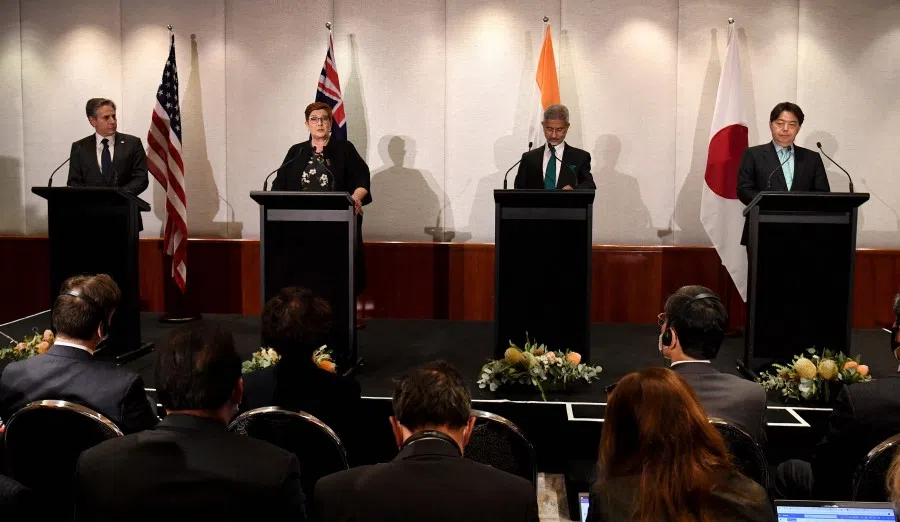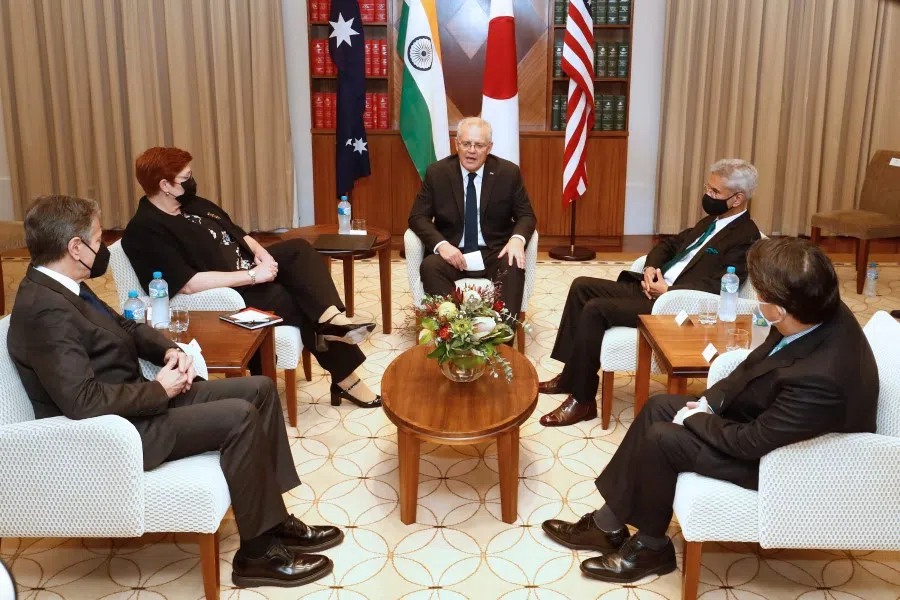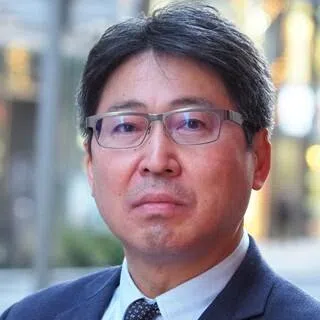Tacking towards Australia: Japan's move to diversify its security and defence cooperation in the Indo-Pacific
Amid Chinese criticism of the recent Quad Foreign Ministers' Meeting as an act of "outdated Cold War mentality", Japan is drawing closer to Australia in a bid to have greater flexibility as it builds up a range of security and defence cooperation in the Indo-Pacific. Nonetheless, it believes that dialogue with China is necessary to truly improve the regional situation, says Japanese academic Shin Kawashima.

The 4th Quadrilateral Security Dialogue (Quad) Foreign Minister's Meeting was held in Australia in February 2022. Japanese Foreign Minister Hayashi Yoshimasa participated in the Quad meeting involving Australia, India, Japan and the US. However, despite the members' discussion about various forms of cooperation, the Chinese foreign ministry intensified its criticism of the Quad, commenting on its "outdated Cold War mentality".
Hayashi attended bilateral meetings with other foreign ministers on the sidelines of the Quad meeting, notably with Australian Foreign Minister Marise Payne on 12 February, which is considered a major development in Japan-Australia relations which produced what some have called "groundbreaking" results.
First, they agreed to work hard towards revising their 2007 Japan-Australia Joint Declaration on Security Cooperation. The new declaration will be formulated around the goal to "strengthen security and defence cooperation between Japan-Australia amid the increasingly severe security environment surrounding the two countries". This will also be the basis for continued Japan-Australia security cooperation.
...the intention [of the Japan-Australia Reciprocal Access Agreement] seems to be to make Australia a partner second only to the US in security and defence cooperation, both on paper and in practice.

Closer Japan-Australia ties in view of other relations
Second, the two countries "affirmed that they would respectively advance domestic procedures to swiftly give effect to the Japan-Australia RAA (Reciprocal Access Agreement)" - an agreement to facilitate implementation of cooperative activities between the defence forces of the two countries and further promote bilateral security and defence.
Japan is also advancing "2+2" foreign and defence minister consultations, the Japan-Australia Information Security Agreement, and the abovementioned joint declaration with the RAA as the foundation for strengthening security and defence cooperation between countries.
Japan's only other RAA is with the US, a Status of Forces Agreement in 1960 that allowed the US to base warships, jets and troops in Japan as part of an alliance that Washington describes as the bedrock of regional security.
A general agreement was reached in 2020 to sign the Japan-Australia RAA. Now that a clear promise has been made to initiate procedures within the two countries, the intention seems to be to make Australia a partner second only to the US in security and defence cooperation, both on paper and in practice. It is likely that other forms of cooperation will also be explored with countries such as the UK and India.
Third, the two ministers "had [frank] discussions on the Comprehensive and Progressive Agreement for the Trans-Pacific Partnership (CPTPP) from a strategic perspective and shared the view to continue to work closely together, including upholding the fundamental values of CPTPP".
At a time when both China and Taiwan are applying for membership, this discussion is important not only in terms of collaboration between Japan and Australia but also to exchange information about the UK, another applicant. This is because the outcome of negotiations with the UK is likely to become a precedent for the negotiations with China and Taiwan (although they might not necessarily take place).

It goes without saying that attention will be given to China in the security and defence cooperation, but this does not simply mean that the two countries will be "antagonistic" against China. Both countries are maintaining close economic relations with China amid a variety of restrictions and harsh circumstances. Additionally, both want to be careful in how they handle relations with China as 2022 marks the 50th anniversary of the normalisation of diplomatic relations between China and the two countries.
American allies do not necessarily have enough opportunities to conduct "dialogue" with China.
Nonetheless, as Japan is trying to make its security and defence cooperation more versatile and diverse, involving not only the US but also NATO and other countries, relations with Australia will be important as a test case.
Of course, from China's perspective, such actions reflect an "outdated Cold War mentality" and are "minor manoeuvres" undertaken by the US and its allies, thus making them entirely unacceptable. Still, the US and its allies have a shared awareness of the need to respond to China's intensifying military activities. The security issues will only become more serious if the current situation is allowed to escalate. American allies will most likely have to try to create more opportunities for "dialogue" with China to prevent this.
At present, Washington is exploring ways to cooperate with China on climate change and other issues, but American allies do not necessarily have enough opportunities to initiate dialogue with China. With the post-Covid situation and the 50th anniversary of the normalisation of diplomatic relations in mind, I believe the next step should be to create such opportunities for dialogue.




![[Big read] When the Arctic opens, what happens to Singapore?](https://cassette.sphdigital.com.sg/image/thinkchina/da65edebca34645c711c55e83e9877109b3c53847ebb1305573974651df1d13a)
